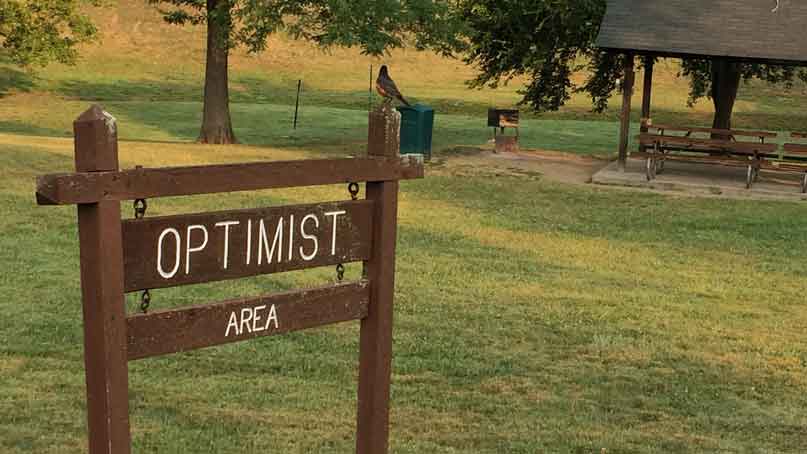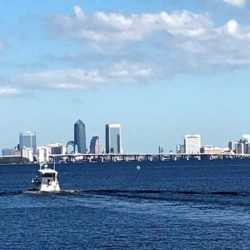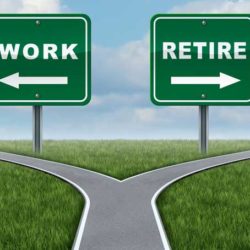It has been a tumultuous few weeks, with the COVID-19 (coronavirus) outbreak officially declared a pandemic, global stocks in bear market territory, and companies and schools changing to remote processes.
Three of my work projects so far are affected:
- I was supposed to coach at a pan-Asian media conference in Singapore this week – that has been postponed till July.
- A half-day training assignment scheduled for next week has been postponed indefinitely – my client contact is worried for her own job.
- A longtime client (6 years and counting) that organized a leadership program every April has postponed till August.
Even personally our day-to-day has been upended as our youngest is unexpectedly home with us for two more weeks — her spring break was extended for one week, and her college is going remote for an additional week after that.
We are currently in Florida, and the Jacksonville area seems largely unaffected so far. While the nearby Players PGA golf tournament was cancelled, along with most other sporting events around the country, and many local events are cancelled, roads are still crowded and many people were still out and about yesterday at the stores and restaurants we visited.
However, my friends and family in New York City report emptier streets and subways, buying limits posted in some stores and other more obvious signs of disruption.
We haven’t changed our routines, but there have been many changes around us. Here are five ways that coronavirus has impacted our FIRE plans:
1 – We got a crash course in CFAR insurance

We generally buy travel insurance for international trips, mainly for the medical coverage. Travel insurance also comes with trip cancellation protection, and when the event organizer for the conference I was supposed to attend this week in Singapore changed the dates, I tried to get coverage for our airline change fees ($600 total so definitely worth fighting for). No luck, as the cancellation protection is only related to disruptions by the travel company (the airline in this case) and not the reason for the trip (i.e., the conference).
What we needed was CFAR insurance, Cancel For Any Reason. You can only buy CFAR insurance shortly after you book your original trip (typically within 10 days). The CFAR coverage adds 50% or more to your travel insurance premium. For an upcoming trip we were researching to Portugal, adding CFAR to the travel insurance plan was an additional 70%, and there would be a 25% deductible. So in the Portugal example, the $103 travel insurance plan became $173 with CFAR coverage. The airfare was around $1,350, so in the event we cancelled, we would get back just over $1,000 (75% of $1,350).
CFAR coverage is definitely something we will add for future business trips. For personal trips where we’re 100% in control of our schedule, the chances of cancelling are more remote. If the airline cancels, that would be most likely covered under the existing trip cancellation protection. But since businesses are changing event schedules and other work processes, and since a lot of my travel is business-related, I’ll need the CFAR coverage.
These expenses will not make or break our FIRE plan, but travel costs are also not insignificant — our Singapore flights were $1600 for both of us, a great deal initially, but not so much now that the usage case is unclear, and we are on the hook for $600 in change fees.
2 – The uncertainty makes an even stronger case for multiple streams of income
That three recent consulting projects were postponed made me even more grateful that we have multiple streams of income (Jay-Z and other celebrities are excellent prototypes!). The three projects totaled over $10,000, so it’s a significant hit if these don’t get rescheduled (and they still might). But we still received deposits from our long-term rentals, AirBNB transfers for our vacation rentals and loan interest from a private deal. Keeping up multiple streams of income is critical to our FIRE plan so we’re watching our consulting pipeline and our rental occupancy like a hawk.
The stock market gyrations also concern me because as we get older, our timeline to recover from any serious downturn gets shorter. We are not relying on our paper portfolio to fund our FIRE lifestyle right now, but it still represents 40% of our net worth. I intend to get more active with our paper portfolio – not day trading by any means, but more vigilant about rebalancing on a monthly basis. I just signed up for a data service that offers various tactical asset allocation strategies, and I’ll report back when I see results from that.
3 – The coronavirus impact on real estate is still unclear
Our long-term rentals in North Carolina and Florida have longtime tenants in place, and with all the disruption elsewhere, I don’t anticipate they’ll be moving now of all times. However, what if a tenant loses their job, or if they are consulting like me and their projects dry up? All of our properties are managed by third-party property managers so we don’t know the specifics of our tenants. We’ll just have to wait and see who renews when leases come up and if rent payments continue uninterrupted.
Mortgage rates have decreased considerably, so our tenants (and other people renting) might decide to jump in and buy. On the other hand, the job market uncertainty might discourage people from making a big purchase right now. On a different note, we could take advantage of low mortgage rates ourselves and refinance to save some money, cash-out refinance to extract equity at rock-bottom rates or look for additional rentals. The coronavirus impact on real estate is still unclear because there are many possible actions our tenants could take and we could take.
Rental income supports our FIRE lifestyle right now, so we have to be smart about managing this asset class. I’m not in a rush to make any moves or to rush our tenants.
4 – The value proposition of Costa Rica is still strong in the long-term

Within the last 24 hours of writing this, new US travel bans to Europe have been announced. US – Costa Rica hasn’t been impacted so far, but there will surely be a decrease in travel overall. Costa Rica has reported relatively fewer coronavirus cases than the US and other countries, but that’s not the only decision factor in people’s vacation plans. If the stock market and the job market continue to underwhelm, people will tighten their belts, and vacation plans could be a casualty.
That said, a place like Costa Rica may be even more desirable, as companies embrace remote work arrangements. Costa Rica is an ideal location to be a digital nomad – a short, direct flight to the US, in the Central Time Zone so easy to work with clients on both coasts, an idyllic lifestyle. If you need to decrease your living expenses, you can live very well in Costa Rica for a fraction of the cost. When we spent a month in Costa Rica, we didn’t budget and cut our expenses by more than 50%.
Costa Rica is our FIRE plan B, and it may become the go-to alternative for others. One of my previous clients works in hospitality and is worried about her job prospects. She might be better off working for herself, like Dawn Banks – a UK transplant to Costa Rica who turned her longtime hospitality experience into a boutique hotel business in Potrero. Costa Rica still taps into the growing trends of digital nomad work, retiring abroad and simple, sustainable living, so we are bullish on its place in our FIRE plan.
5 – Sustainability plans for our Casa take on renewed importance
When we bought Casa Salita, we were excited about the secondary possibilities beyond rental income – e.g., building additional living space on the double lot, hosting events on the large, private property. The house is bordered on one side with protected green zone, so we also had ideas to play up this environmental advantage – e.g., more fruit trees (we already have bananas and citrus!), solar panels on the roof, rainwater recycling.
We tabled these additional investments, as we were focused on readying the property as-is for vacation rentals. We’re entering season three of the vacation rental business, so we have some track record there. With the coronavirus outbreak, it’s even more apparent how valuable it is to be able to live sustainably and independently. Time to revisit the environmental improvements, especially if our FIRE plan has to accommodate living off-the-grid!
I’m avoiding doomsday thinking and focusing on the opportunity

While the ultimate impact is yet unclear and our day-to-day has been disrupted, I’m doing whatever I can to maintain a focus on the opportunity ahead. This continues to mean a focus on consulting, long-term rentals, vacation rentals, paper assets and other deals as they arise. We’re looking at a couple of new investments right now and hope to have more to report soon!


 We are Scott and Caroline, 50-somethings who spent the first 20+ years of our adult lives in New York City, working traditional careers and raising 2 kids. We left full-time work in our mid-40’s for location-independent, part-time consulting projects and real estate investing, in order to create a more flexible and travel-centric lifestyle.
We are Scott and Caroline, 50-somethings who spent the first 20+ years of our adult lives in New York City, working traditional careers and raising 2 kids. We left full-time work in our mid-40’s for location-independent, part-time consulting projects and real estate investing, in order to create a more flexible and travel-centric lifestyle.  Financial independence and early retirement is not something we originally focused on, but over time realized it was possible. Our free report,
Financial independence and early retirement is not something we originally focused on, but over time realized it was possible. Our free report, 








I’ve been to Costa Rica twice. Had local friends drive me around but they cautioned me that everything from car to clothes are expensive. And not to rent a car cause car insurance doesn’t work in CR. Not sure how you managed the insurance aspect?
Btw the pics look amazing. Where do you have your properties ?
CR is expensive relative to other countries in Central America and other popular digital nomad places, especially in Asia. However, compared to NYC where we lived for the first 40+ years of our lives, it’s more than 50% cheaper. Our properties are in Tamarindo and Langosta, and you don’t need a car day-to-day, though keep in mind the longest we stayed was one month. It’s cheap to rent one when you need it. So I don’t know the numbers for car insurance, but NYC was pretty high so I can’t imagine it would phase us!
I’m also in Florida (a little north of Orlando), and things are quickly getting freaky here. Hospitals are about to suspend elective surgeries, people are shopping as if to prepare for a category 5 hurricane, schools are closed for a few weeks…
All that aside, I’m curious – what do you do for health insurance, given your frequent trips out of country?
The other day, we got to a grocery store 5 minutes after it opened, and it was already full with many shelves bare. Hopefully stores keep getting restocked. Regarding health insurance, we have FL-based insurance on the exchange for when we’re in the US, and we always get travel insurance which includes medical coverage abroad for emergencies for when we travel.